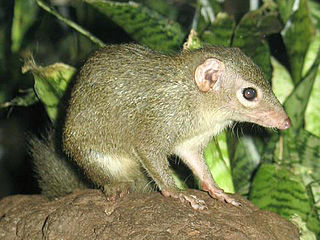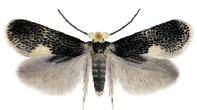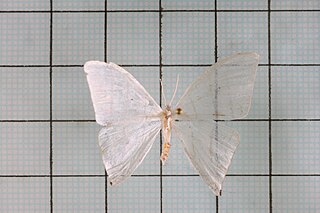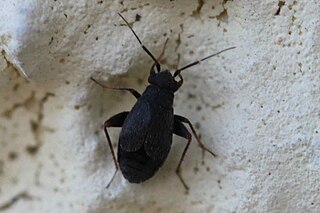
Colombia, officially the Republic of Colombia, is a country in South America with an insular region in North America. It is bordered by the Caribbean Sea to the north, Venezuela to the east, Brazil to the southeast, Ecuador and Peru to the south, the Pacific Ocean to the west, and Panama to the northwest. Colombia comprises 32 departments and the Capital District of Bogotá, the country's largest city. It covers an area of 1,141,748 square kilometers (440,831 sq mi), with a population of 50 million. Colombia's rich cultural heritage reflects influences by various Amerindian civilizations, European settlement, African slaves, and immigration from Europe and the Middle East. Spanish is the nation's official language, besides which over 70 languages are spoken.

Paris is the capital and most populous city of France, with an estimated population of 2,165,423 residents in 2019 in an area of more than 105 km², making it the 34th most densely populated city in the world in 2020. Since the 17th century, Paris has been one of the world's major centres of finance, diplomacy, commerce, fashion, gastronomy, science, and arts, and has sometimes been referred to as the capital of the world. The City of Paris is the centre and seat of government of the region and province of Île-de-France, or Paris Region, with an estimated population of 12,997,058 in 2020, or about 18% of the population of France, making it in 2020 the second largest metropolitan area in the OECD, and 14th largest in the world in 2015. The Paris Region had a GDP of €709 billion in 2017. According to the Economist Intelligence Unit Worldwide Cost of Living Survey, in 2021 Paris was the city with the second-highest cost of living in the world, tied with Singapore, and after Tel Aviv.

The buff-banded rail is a distinctively coloured, highly dispersive, medium-sized rail of the rail family, Rallidae. This species comprises several subspecies found throughout much of Australasia and the south-west Pacific region, including the Philippines, New Guinea, Australia, New Zealand, and numerous smaller islands, covering a range of latitudes from the tropics to the Subantarctic.

The common treeshrew is a small mammal in the treeshrew family Tupaiidae, and is native to Thailand, Malaysia, and Indonesia. It has been listed as Least Concern by IUCN as it remains common and displays some adaptability to ongoing habitat loss.

Ectoedemia is a genus of moths in the family Nepticulidae. It consists of the subgenera Ectoedemia, Etainia, Fomoria and Zimmermannia. This genus was established by August Busck in 1907.

Kevin De Bruyne is a Belgian professional footballer who plays as a midfielder for Premier League club Manchester City and the Belgium national team. He is widely regarded as one of the best players in the world and pundits have often described him as a "complete footballer".

Robert Anthony De Niro Jr. is an American actor, producer, and director. He is particularly known for his nine collaborations with filmmaker Martin Scorsese, and is the recipient of various accolades, including two Academy Awards, a Golden Globe Award, the Cecil B. DeMille Award, and a Screen Actors Guild Life Achievement Award. In 2009, De Niro received the Kennedy Center Honor, and received a Presidential Medal of Freedom from U.S. President Barack Obama in 2016.
Bothriceps is an extinct genus of stereospondyl temnospondyl. It is a member of the infraorder Trematosauria and is the most basal brachyopomorph known. It is one of the only brachyopomorph that lies outside the superfamily Brachyopoidea, which includes the families Brachyopidae and Chigutisauridae. It shares several similarities to Keratobrachyops, another basal brachyopomorph, and may be closely related to or even synonymous with it.
Blinasaurus is a name of an extinct genus of prehistoric brachyopid found in Triassic geological formations of Australia. The type species is Platyceps wilkinsonii Stephens, 1877. The genus was established by John W. Cosgriff in 1969 to incorporate the type, discovered in New South Wales, and the author's new fossil species, Blinasaurus henwoodi, describing type material found in Blina Shale in the Kimberley region of northwest Australia.

Ditrigona is a genus of moths belonging to the subfamily Drepaninae. The genus was erected by Frederic Moore in 1888.
Pierre Réal was a French entomologist. He specialised in Lepidoptera.
Ectoedemia wilkinsoni is a moth of the family Nepticulidae. It was described by Scoble in 1983. It is known from South Africa.
Ditrigona wilkinsoni is a moth in the family Drepanidae. It was described by Jeremy Daniel Holloway in 1998. It is found on Borneo and possibly Peninsular Malaysia.

Platyceps is a genus of snakes of the family Colubridae.

Thaumetopoea is a genus of moths belonging to the family Notodontidae. It was first described by Jacob Hübner in 1820.

Chlamydatus is a genus of plant bugs in the family Miridae. There are more than 30 described species in Chlamydatus.
Charopella is a genus of two species of tiny pinwheel snails that are endemic to Australia's Lord Howe Island in the Tasman Sea.

Charopella wilkinsoni, also known as Wilkinson's pinwheel snail, is a species of air-breathing land snail, a terrestrial pulmonate gastropod mollusc in the pinwheel snail family, that is endemic to Australia's Lord Howe Island in the Tasman Sea.

Trochocyathus is a genus of corals in the family Caryophylliidae. Living species are found in waters near Hawai'i at depths of 64 to 1,020 meters. Fossil species are found as far back as the latest Paleocene in the Dilwyn Formation of Australia, in the late Cretaceous in the Woodbury Formation of New Jersey, and in Suffolk.











